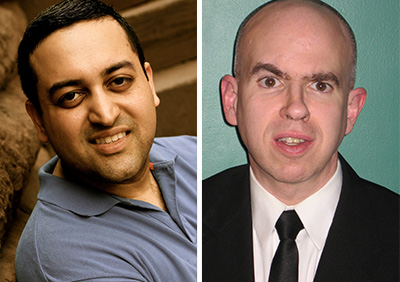Expert’s Corner: When Should SAMe Be Considered for Major Depression?
Abstract
This nutraceutical can be used as both a monotherapy and an add-on treatment for major depressive disorder and comorbid medical illnesses.

S-adenosyl-L-methionine (SAMe) was discovered by Giulio Cantoni, the late Italian scientist and biochemistry director of the National Institutes of Health. It is an intracellular amino acid metabolite and enzyme co-substrate involved in multiple crucial biochemical pathways, including the biosynthesis of hormones and neurotransmitters.
SAMe serves as the universal methyl donor in more than 100 methyltransferase reactions, which regulate essential metabolic pathways. Methylation involves the transfer of a methyl group to an acceptor molecule, including DNA bases, proteins, phospholipids, amino acids, and neurotransmitters. Aberrant methylation has been implicated as a pathogenic mechanism in central nervous system disorders, including depression and dementia. Methyl group donation is a target mechanism to prevent disease, delay disease progression, and enhance therapeutic outcomes.
SAMe deficiency in cerebrospinal fluid (CSF) has been reported in major depression as well as other neuropsychiatric conditions. As a dietary supplement, SAMe crosses the blood-brain barrier and increases CSF levels, hence its potential benefit to patients with depression. More than 50 clinical trials in the United States and Europe have evaluated SAMe in the treatment of depressive disorders, including 19 double-blind, randomized, placebo-controlled trials with more than 850 patients, and 21 controlled trials with more than 1,500 patients comparing SAMe with other antidepressants.
A seminal meta-analysis commissioned by the Agency for Healthcare Research and Quality found that SAMe monotherapy was more effective than placebo and comparable to tricyclic antidepressants in treating depressive symptoms. A recent meta-analysis examining adjunctive nutraceuticals for depression demonstrated positive results for SAMe. While additional studies are needed, SAMe appears to be safe and efficacious both as a primary and add-on treatment for major depressive disorder (MDD).
Depressed patients often present with a broad array of comorbid conditions, may take concurrent medications, and report medication-related side effects. Evidence suggests that SAMe can ameliorate symptoms associated with medical conditions such as hepatic disease (for example, alcoholic cirrhosis), osteoarthritis, fibromyalgia, and cognitive and memory decline. Compared with prescription medications, SAMe may cause fewer and less severe side effects and result in considerably fewer drug interactions. The evidence generally supporting the safety and efficacy of SAMe in psychiatric and comorbid illnesses offers opportunities for the use of SAMe in diverse clinical contexts. For example, patients with MDD and comorbid rheumatologic illnesses may find SAMe to be particularly beneficial.
Careful consideration of pursuing treatment with SAMe as opposed to a registered antidepressant is required on the part of the clinician and the patient. Clinicians who recommend SAMe need to inform their patients that this compound has not been tested as rigorously as its FDA-approved counterparts. However, the risks of SAMe compare quite favorably with prescription antidepressants, particularly in that it does not cause sexual dysfunction or weight gain (two of the most common causes of antidepressant discontinuation), and it is less likely to be life-threatening in patients who are at risk for overdosing during suicide attempts. As with other antidepressants, SAMe can trigger hypomanic or manic symptoms in patients with bipolar disorder and cause gastrointestinal upset.
SAMe is sensitive to moisture. Thus, clinicians are advised to instruct patients to purchase SAMe that is contained in foil blister packaging.
Although the cost of SAMe is not covered by insurance companies and is among the more expensive natural antidepressants, when compared with the high copayments for many prescription medications, the cost is reasonable, and patients should weigh the costs against potential benefits. ■



